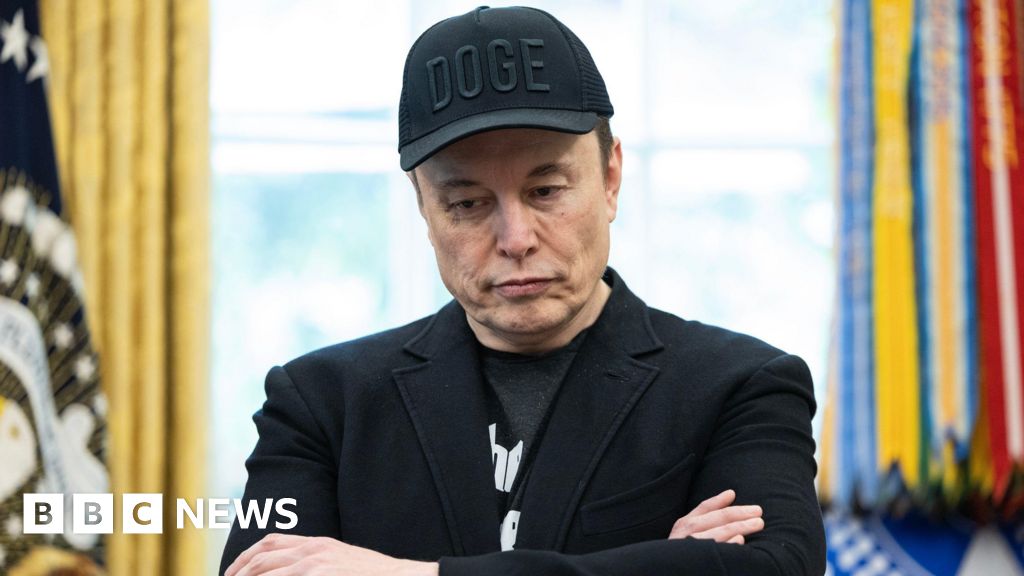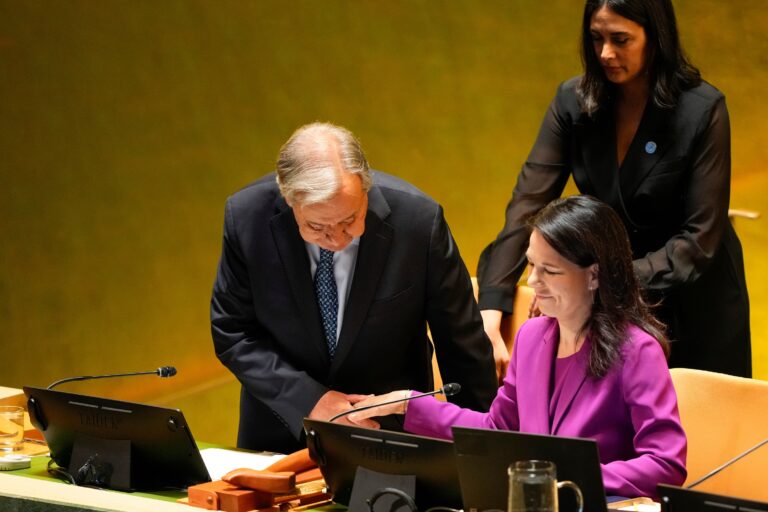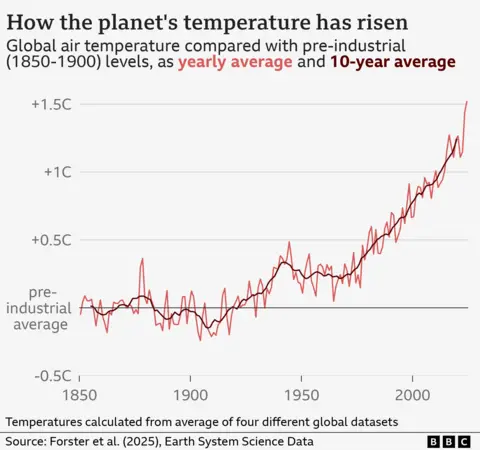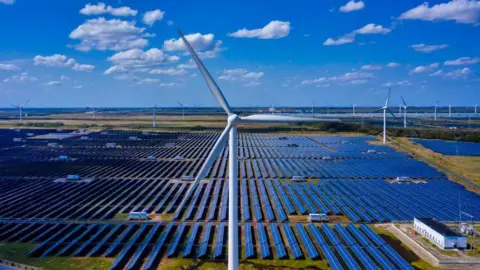Environment
Musk’s fellowship of Royal Society in doubt after rally address

Read more on post.
Elon Musk’s controversial comments at the Unite the Kingdom rally in London have raised doubts over his fellowship of the Royal Society – the world’s most prestigious scientific institution.
Addressing the rally organised by right-wing activist Tommy Robinson, Musk criticised “uncontrolled migration” and said: “Whether you choose violence or not, violence is coming to you. You either fight back or you die.”
In response, Sir Adrian Smith, president of the Society, wrote a letter to fellows in which he raised concerns about “resorting to the language of violence” and the threat it posed to the organisation’s values.
He said the matter would be discussed at the society’s next council meeting.
Elon Musk was first elected a fellow of the UK’s national academy of sciences in 2018, for his work in the space and electric vehicle industries. But his continued participation in the Royal Society has grown increasingly controversial.
Earlier this year, thousands of scientists signed a letter raising concerns about his involvement in funding cuts to US scientific research, as part of his previous role in Trump’s Department of Government Efficiency.
The Society debated his fellowship in March but it was decided he would remain. Some fellows said any attempts to remove him could be seen as a curtailment of freedom of expression.
Without refencing Musk directly, Sir Adrian Smith wrote to fellows: “I am sure that many of you will share my concern at the events of the last week and the growing tendency to resort to the language of violence in pursuit of political programmes – including, unfortunately, an address to the recent London rally from a Fellow of the Royal Society.”
He went on to say that: “Most of us have had the good fortune to have lived our lives in contexts where core values of tolerance, courtesy, respect for others, and freedom of speech have been widely acknowledged and respected and we have come to take them for granted.”
“It is no accident that human understanding and science have also flourished to an extraordinary extent in this period. Threats to these values are now real,” he finished.
Sir Adrian’s letter was first reported by The New World.
Addressing the crowds on Saturday via video link, Musk said: “I think there’s something beautiful about being British and what I see happening here is a destruction of Britain, initially a slow erosion but rapidly increasing erosion of Britain with massive uncontrolled migration.
“This is a message to the reasonable centre, the people who ordinarily wouldn’t get involved in politics, who just want to live their lives.
“They don’t want that, they’re quiet, they just go about their business.
“My message is to them: if this continues, that violence is going to come to you, you will have no choice. You’re in a fundamental situation here.
“Whether you choose violence or not, violence is coming to you. You either fight back or you die, that’s the truth, I think.”
Any decision to remove Mr Musk would be a significant moment in the organisation’s history. It is 250 years since a member of the Royal Society was ejected: German scientist and writer Rudolf Erich Raspe, who was accused of theft and fraud.
Mr Musk has been approached for comment by BBC News sent via his companies Tesla and Space X.
Environment
China, world’s largest carbon polluting nation, announces new climate goal to cut emissions

This post was originally published on this site.
Environment
Indigenous women in Peru use technology to protect Amazon forests

This post was originally published on this site.
Environment
China makes landmark pledge to cut its climate emissions

Read more on post.
Mark Poynting and Matt McGrathBBC News Climate and Science
 European Photopress Agency
European Photopress AgencyChina, the world’s biggest source of planet-warming gases, has for the first time committed to an absolute target to cut its emissions.
In a video statement to the UN in New York, President Xi Jinping said that China would reduce its greenhouse gas emissions across the economy by 7-10% by 2035, while “striving to do better”.
The announcement comes at a time the US is rolling back on its commitments, with President Donald Trump on Tuesday calling climate change a “con job”.
But China’s plan has been met with disappointment from environmentalists as it falls far short of what would be needed to meet global climate goals.
“Even for those with tempered expectations, what’s presented today still falls short,” said Yao Zhe, global policy adviser at Greenpeace East Asia.
While the year’s big gathering of global leaders will be at COP30 in Brazil in November, this week’s UN meeting in New York has extra relevance because countries are running out of time to submit their new climate plans.
These pledges – submitted every five years – are a key part of the Paris climate agreement, the landmark deal in which nearly 200 countries agreed steps to try to limit global warming.
The original deadline for these new commitments – covering emissions cuts by 2035 – was back in February, but countries are now scrambling to present them by the end of September.
Speaking before the meeting UN Secretary-General António Guterres said the pledges were critical to keep the long-term rise in global temperatures under 1.5C, as agreed in Paris.
“We absolutely need countries to come […] with climate action plans that are fully aligned with 1.5 degrees, that cover the whole of their economies and the whole of their greenhouse gas emissions,” he said.
“It is essential that we have a drastic reduction of emissions in the next few years if you want to keep the 1.5 degrees Celsius limit alive,” he added.
As the world’s biggest emitter, China’s plans are key to keeping this goal in sight.
Back in 2021, President Xi announced that China would aim to peak its emissions this decade and reach “carbon neutrality” by 2060.
Today’s pledge marks the first time that China has set actual emissions reductions targets on that path.
“These targets represent China’s best efforts based on the requirements of the Paris agreement,” President Xi said.
It also covers all greenhouse gases, not just carbon dioxide, and will be measured “from peak levels” of emissions – the timing of which President Xi did not specify.
He added China would:
- expand wind and solar power capacity to more than six times 2020 levels
- increase forest stocks to more than 24bn cubic metres
- make “new energy vehicles” the mainstream in new vehicle sales
Off track for 1.5C
Such is the scale of China’s emissions that any reduction would be significant in climate terms.
China was responsible for more than a quarter of planet-warming emissions in 2023, at almost 14bn tonnes of carbon dioxide-equivalent.
A 10% reduction in China’s emissions would equate to 1.4bn tonnes a year, which is nearly four times the UK’s total annual emissions.
But China’s new target does fall short of what would be needed to meet international climate goals.
“Anything less than 30% is definitely not aligned with 1.5 degrees,” said Lauri Myllyvirta, lead analyst at the Centre for Research on Energy and Clean Air.
Most scenarios to limit warming to 1.5C – or even well below 2C – would require China to make much greater cuts than that by 2035, he added.
In many cases, that would mean more than a 50% reduction.
It is further evidence of the gap between what needs to be done to meet climate targets and what countries are planning.
Earlier this week, a report by the Stockholm Environment Institute warned that governments around the world are collectively planning to produce more than double the amount of fossil fuels in 2030 than would be in line with keeping to 1.5C.
Ramp-up of renewables
What gives some observers hope is that China has a track record of exceeding many of its international climate commitments.
It had, for example, pledged to reach a capacity of 1,200 gigawatts for wind and solar power by 2030. It smashed through that goal in 2024 – six years early.
“The targets should be seen as a floor rather than a ceiling,” said Li Shuo, director of China Climate Hub at the Asia Society Policy Institute.
“China’s rapid clean tech growth […] could propel the country much further over the coming decade,” he added.
“China’s 2035 target simply isn’t representative of the pace of the energy transition in the country,” agreed Bernice Lee, distinguished fellow and senior adviser at Chatham House.
“There’s a case to be made that Beijing missed a trick in landing a more ambitious goal as it would have won broad global praise – a stark contrast to the US,” she added.
While China ramps up its renewables, it continues to rely heavily on coal, the dirtiest fossil fuel.
Last year saw China’s electricity generation from coal hit a new record – although initial data suggests it has fallen in the first half of 2025 amid a surge in solar electricity.
“There is also mounting evidence that the country’s emissions are plateauing, with this year’s levels expected to be lower than in 2024,” said Li Shuo.
Today’s new target signals “the beginning of decarbonisation after decades of rapid emissions growth”, he added.

-
Culture1 day ago
Taylor Swift’s new cinema outing generates more than €12million in just 24 hours
-
Politics1 day ago
European Parliament snubs Orbán with vote to shield Italian MEP from Hungarian arrest
-
Culture1 day ago
Milan Fashion Week 2025: Unmissable shows and Giorgio Armani in mind
-
Business11 hours ago
Households to be offered energy bill changes, but unlikely to lead to savings
-
Culture2 days ago
Marvel stars Mark Ruffalo and Pedro Pascal stand up for Jimmy Kimmel as Disney boycott intensifies
-
Opinion1 day ago
AI Is Pointless If It Doesn’t Boost Productivity
-
Culture1 day ago
Traitors Ireland finale: A tense and thrilling conclusion to a spectacular first season
-
Travel & Lifestyle1 day ago
At the Marrakech International Storytelling Festival, an Ancient Tradition Finds New Life















































